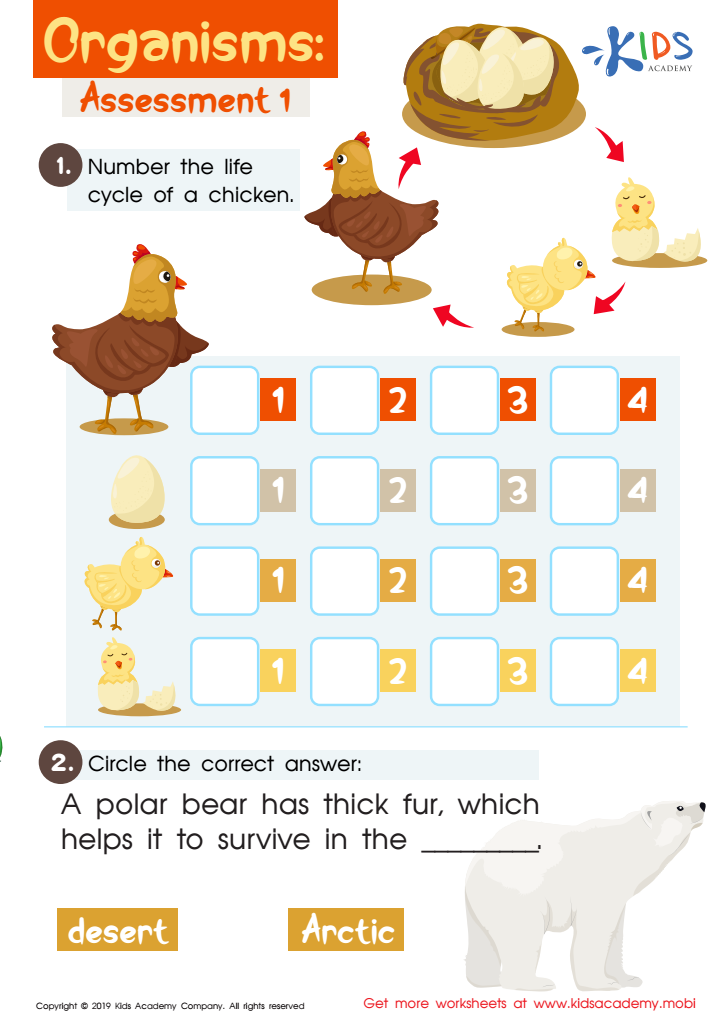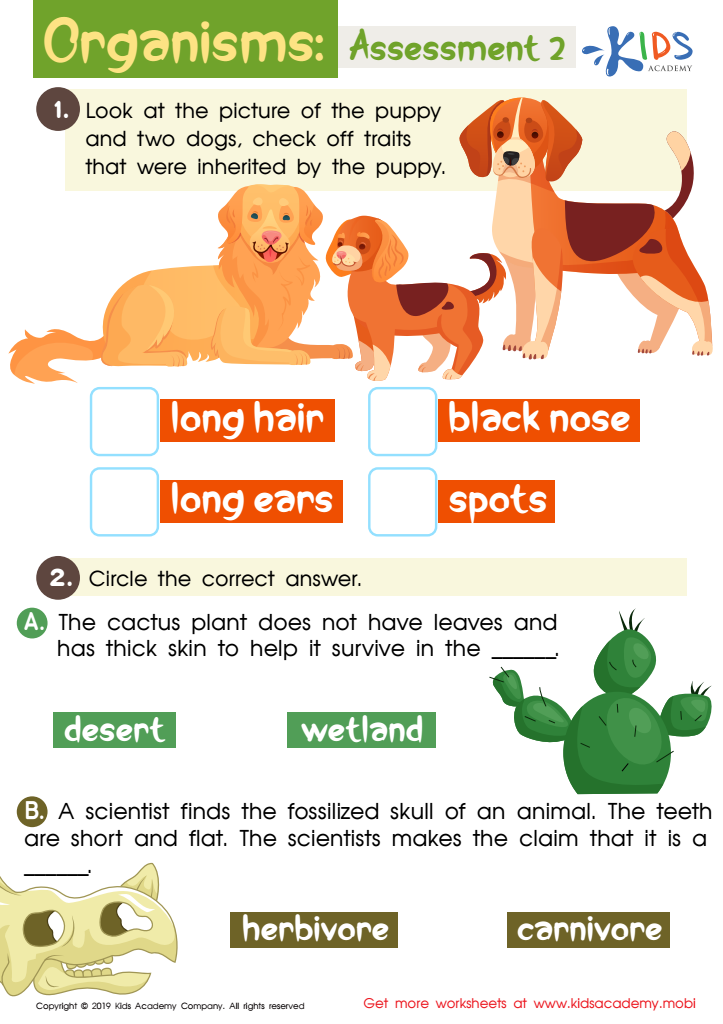Identifying organisms Worksheets for Kids
2 filtered results
-
From - To


Organisms: Assessment 1 Worksheet


Organisms: Assessment 2 Worksheet
Question/Answer
What does the Identifying organisms skill mean when it comes to Grade 3 Our Planet and Environment learning?
The Identifying organisms skill in Grade 3 Our Planet and Environment learning involves teaching children to recognize and name different living things, such as plants, animals, and microorganisms, in their natural environments. It focuses on helping them understand biodiversity and the roles these organisms play in their ecosystems.
How does the mastery of the Identifying organisms skill affect a student's performance at an early age?
The mastery of the Identifying organisms skill at an early age positively influences a student's performance by enhancing observation, classification abilities, and scientific thinking. It fosters curiosity about the natural world, encourages hands-on learning, and strengthens cognitive development, which collectively contribute to a solid foundation in scientific literacy and critical thinking skills crucial for academic success.
What are some effective activities to train students’ Identifying organisms skill when teaching them about Our Planet and Environment?
Effective activities to train students in identifying organisms include nature walks with guided species identification, creating and using dichotomous keys, participating in bioblitz events where students catalog as many species as possible in a given area, utilizing interactive online identification tools and apps, and engaging in citizen science projects that involve identifying and reporting observations of local wildlife and plants.

 Assign to the classroom
Assign to the classroom
.jpg)











